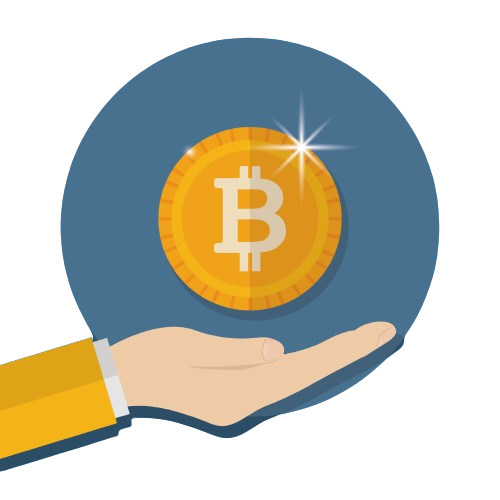
Since its launch in 2009, Bitcoin has grown from an experimental digital currency into a global phenomenon. Today, this cryptocurrency has a market cap in the hundreds of billions of dollars and is accepted by major companies like Microsoft, AT&T, and PayPal. However, the impact of Bitcoin extends far beyond investment returns and corporate adoption. For millions of people around the world, Bitcoin represents an opportunity for greater financial freedom, inclusion, and empowerment.
From providing banking access to the underserved to enabling quicker and cheaper remittances to protect against currency devaluation, Bitcoin is making a difference worldwide. As cryptocurrency adoption accelerates, Bitcoin is improving lives in both advanced and emerging economies. Let’s look at some of the key ways Bitcoin is changing lives across the globe.
Banking the Unbanked
There are over 1.7 billion unbanked adults globally who don’t have access to traditional financial services. The high fees, extensive paperwork, and challenge of reaching remote areas make it difficult for banks to profitably serve the world’s poor. But with just a mobile phone and an internet connection, anyone can set up a Bitcoin wallet and send or receive Bitcoin peer-to-peer.
Services like crypto microloans, savings accounts, and insurance that run atop Bitcoin provide basic financial services to people neglected by the traditional system. Countries with high unbanked populations like Africa, Southeast Asia, and South America have some of the highest cryptocurrency adoption rates. Bitcoin finally offers digital financial inclusion for the billions living in poverty.
Accelerating International Remittances

Remittances are international money transfers made by foreign workers back to families in their home countries. The World Bank estimates over $500 billion is sent in remittances annually. However, remittance services through banks and providers like Western Union have notoriously high fees averaging around 7%. Not only are fees high, transfers can take days to process and recipients may have to travel long distances to collect funds.
Bitcoin enables migrants to efficiently send money home by transferring funds directly to a recipient’s Bitcoin wallet. Fees are nominal even for tiny transaction values. Transfer takes minutes no matter the location. The recipient can then exchange Bitcoin for local currency through a cryptocurrency exchange or peer-to-peer platform. Bitcoin makes remittances cheaper, quicker, and more convenient for the hundreds of millions who depend on them.
Protecting Against Currency Devaluation
Rapid currency devaluation is a threat faced in countries suffering from hyperinflation like Venezuela, or war-torn countries like Syria. Savings in local currency can be decimated overnight. Hard assets like property or gold may be difficult to obtain or store securely. Capital controls often restrict accessing foreign currencies like the US dollar.
For citizens of countries with unstable currencies, Bitcoin provides a store of value protected from political turmoil. Bitcoin can be purchased and saved in a Bitcoin wallet. If hyperinflation takes hold, the value of local currency plummets while the value of Bitcoin remains steady. Its independence from banking systems and governments makes Bitcoin uniquely suited to hedge against currency and banking meltdowns.
Circumventing Censorship & Capital Controls
Autocratic regimes often restrict access to foreign capital and censor transactions or sites they can’t control. But government crackdowns can’t stop peer-to-peer Bitcoin transactions that don’t rely on banks or third parties. This gives citizens a way to circumvent capital controls and maintain financial autonomy.
By passing government censorship, Bitcoin provides open access to money and information. Its pseudonymous nature offers reduced visibility of financial activity like buying banned books or supporting dissident groups. And ideas like Bitcoin educate people in closed societies on concepts of financial self-sovereignty and individual liberties.
Fostering Women’s Financial Inclusion

Cultural and legal discrimination often deprive women of equal access to the financial system. Only 65% of women worldwide have a bank account compared to 72% of men. However, Bitcoin enables pseudo-anonymous ownership without regard to gender, race, or social status. Technological literacy is the only barrier to setting up a Bitcoin wallet to store wealth securely.
Educational programs like Bitcoin-enabled microlending encourage cryptocurrency adoption by women. Bitcoin appeals to female entrepreneurs in male-dominated societies as it allows them to independently start businesses beyond the reach of disapproving officials or patriarchal networks. By bypassing traditional gatekeepers, Bitcoin promotes financial inclusion and power for disadvantaged women globally.
Bottom Line
Far from its stereotype as a tool for criminals, Bitcoin enables millions worldwide to take control of their financial destiny. From migrant workers sending money home to women covertly accumulating savings digital cash empowers individuals in ways legacy finance can’t. And developing world adoption is just the beginning.
As cryptocurrency gains mainstream adoption and the technology matures, there are opportunities to expand its humanitarian impact even further. Ideas like decentralized digital IDs can provide identification to refugees and stateless populations lacking documentation so they can access essential social services. Moves by governments like El Salvador to accept Bitcoin as legal tender recognize its benefits to citizens through financial inclusion.
While problems like price volatility remain barriers to widespread adoption, Bitcoin’s ability to bank the unbanked, accelerate remittances, circumvent censorship, protect savings, and advance women’s rights make it one of the most consequential financial innovations in history. We are still in the early days, but the examples so far point to a future where Bitcoin could empower billions more to take control of their financial lives.